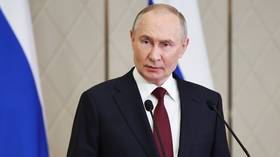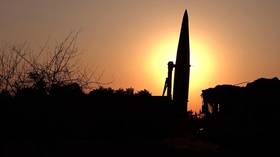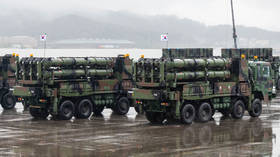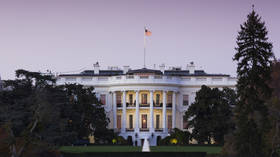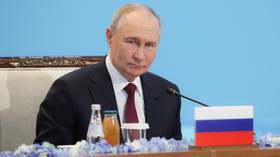‘Arrogance of imperialism’ made US expect ‘flowers and applause’ for military offensives
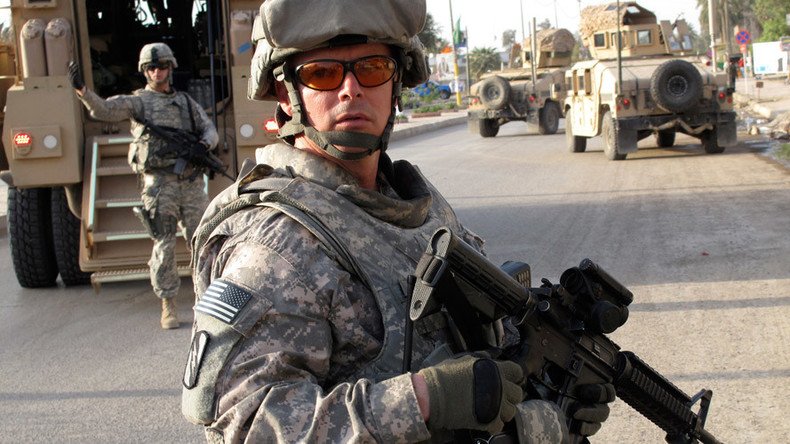
Over the last 12 years, there has been no applause for US intervention in the Middle East and North Africa. In fact, we’ve seen great destabilization, and the same is true of Libya and Syria, says Abayomi Azikiwe, editor of Pan African News Wire.
Although Libya has been a basket case since the 2011 overthrow and killing of strongman Muammar Gaddafi by street thugs and NATO-backed forces, things are looking to get worse for the North African state.
This week, it was revealed that Islamic State militants have managed to steal chemical weapons from storage facilities in Libya that were not properly guarded and the gas has already been used, a cousin of the late Libyan leader Muammar Gaddafi told RT Arabic in an exclusive interview.
“ISIS has managed to find some of the secret underground storage facilities, still holding chemical weapons, hidden in the desert. Unfortunately, they weren’t properly guarded,” said Ahmed Gaddafi Al-Dam, a cousin of Muammar Gaddafi, the Libyan leader who was killed in 2011.
Abayomi Azikiwe, while expressing confidence that it was Islamic State militants who were responsible for launching a chemical attack on Syria in 2013 [The Ghouta chemical attack, with death estimates ranging from several hundred to almost 2,000, occurred during the Syrian Civil War on August 21, 2013], said the actual source of those weapons – which he said pose a “serious threat” to Europe - was still a matter of question.
“It’s not really clear despite the statements by Ahmed Gaddafi Al-Dam that perhaps [chemical weapons] were uncovered from a storage site in the south of the country.
“There were reports that Islamic State had used chemical weapons in Syria in 2013 and attempted to blame it on the government in Damascus is a clear indication that they have alternative supplies of sarin gas.
“Where these supplies are coming from warrants an investigation by the international press,” he emphasized.
Azikiwe points to the “arrogance of US imperialism” that underscored the popular notion that US troops would be greeted by “applause and flowers” following their liberation of a country that felt much more like an occupation.
“Well, over the last 12 years there have been very few flowers and almost no applause for US intervention in that area.
In fact, we’ve seen “great destabilization, and the same is true of Libya, as well as Syria,” he said.
According to Azikiwe, these military misadventures result from “a miscalculation based upon the superiority complex of the United States and its allies vis-à-vis the countries of Africa and the Middle East.”
Deployment fail: US special ops forces arrive in Libya, immediately told to leave
https://t.co/Ha88mNrGxMpic.twitter.com/OiTvEyFUwL
— RT America (@RT_America) December 18, 2015When asked if there remained a possibility of renewed US-led airstrikes on Libya, Azikiwe answered “most definitely.”
The US-based editor pointed to the “surveillance flights over Sirte,” which are now “measuring coordinates for renewed aerial bombardment of the country, as well as a proposed “6,000 person, Italian-led, so-called peacekeeping force that is designed to implement this forced agreement that the two rivalry regimes were implored to sign over a week ago.
"This is a clear indication that they have plans to occupy Libya on the ground, as well as a renewed aerial bombardment of that North African state.”
None of this points to a lasting peace in Libya, and if reports of Islamic State militants acquiring chemical weapons in the North African state are true it points to some very worrying prospects for Libya’s neighbors as well.
LISTEN MORE:
The statements, views and opinions expressed in this column are solely those of the author and do not necessarily represent those of RT.


